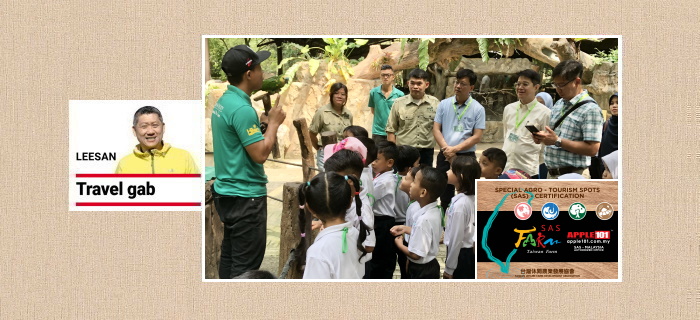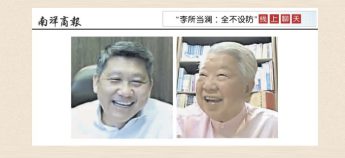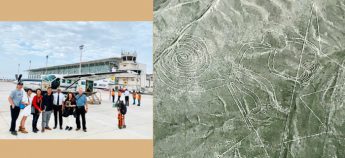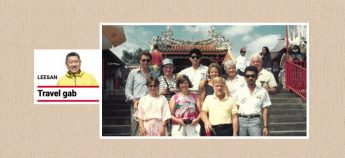Big potential for Malaysia – by leesan
The fast development of taiwan’s leisure farming industry is something our local farmers and tour operators should look into.
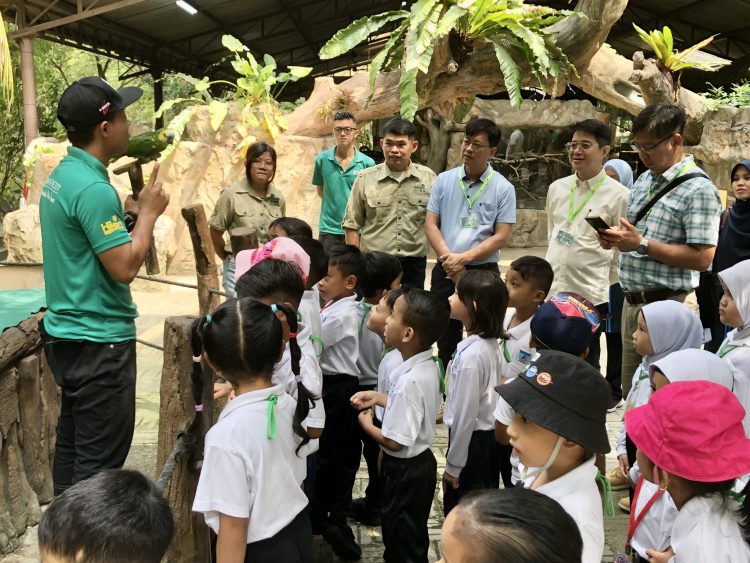
A group of taiwanese agricultural experts participating in an outing at Farm In the City in Seri Kembangan, Selangor, recently.
ON Taiwan’s national day on Oct 15, 2005, I was invited to a study tour on “leisure farms” and the early development of the island’s leisure farming industry, sometimes known as agritourism or agrotourism. Back then there were no foreign tour groups visiting Taiwan’s leisure farms, and even the local inbound operators did not dare to arrange day tours for tourists to experience the local farming practices and culture.
That said, such an emerging experiential farming model had drawn the attention of many domestic travellers, who not only got to enjoy fresh farm produce but were also able to “go back in time” to their grandparents’ houses in their native villages.
It was like love at first sight for me some 18 years ago when I had my first experience being at a Taiwanese leisure farm. I once told Shinny Chiu of Taiwan Leisure Farming Development Association, “I bet Malaysians will love the traditional flavours here. However, some of the infrastructure such as the room style, bedding, toilet and shower facilities, dining area, food preparation, cleanliness, comfort and security would need to be elevated to international stand- ards. But to improve and upgrade these amenities would necessitate massive financial input and manpower.”
The thing is, developing Taiwan’s farms for tourism purposes was a move in the right direction, but to go further, it was absolutely essential for these local farms to embrace “systematic and professional” reinvention, as well as upgrading, in order to achieve optimal results.
While I was studying in Japan in the 1990s, I had the chance to experience rural farmstays in the country. Back then my Japanese guardian Toyoda-san would take me and his two very young daughters to some farmhouses in the Saitama prefecture outside Tokyo during summer vacations. We had a really great time enjoying ourselves in the expansive orchards and farmlands, hand-picking organic vegetables, fruits and even eggs, and savouring the delicious dishes prepared with our own harvests.
Indeed, Japanese farm stays offered such rich rural lifestyle experiences, but there wasn’t much participation from the farm owners, unfortunately. Years later, I somehow managed to find that rare warm hospitality in Taiwan’s leisure farms!
Looking back at my early encounters with Taiwan’s leisure farms, my first destination was the Flying Cow Ranch where I met the farm’s first-generation owner Wu Dun-yao. I really admired how he and his fellow co-founder had painstakingly created a Hokkaido-like Biei fairytale setting all by themselves from scratch.
Meanwhile, Chang Chin-lai of Shangri-la Leisure Farm ingeniously boosted the orchard farm’s value many times over. Their farm stay and restaurant have become vastly popular.
Family affair
During my subsequent study tours, I discovered that almost all the leisure farms in Taiwan were run by two or even three family generations, and I could always feel the superb hospitali- ty of these owners. Perhaps this is an advantage that is apparent- ly absent in the recreational farms of Japan or Europe, and because of that this unique characteristic of Taiwanese leisure farms has evolved into such a noteworthy industrial phenomenon.
Taiwan’s agricultural sector is lucky enough to have this bunch of willing pioneers to innovate the island’s leisure farming industry. Many of the old farmers even came together to set up an NGO known as Taiwan Leisure Farming Development Association (TLFDA), drawing up plans to reenergise local farms with novel ideas in hopes of encouraging all the farms in Taiwan to continue to contribute to this particular industry.
What these old farmers could never have imagined is that after more than 20 years, the value of Taiwan’s leisure farming industry has multiplied many times today.
Because of this, too, more of their children and grandchildren have been willing to come back from the big cities to tend to the farms, and later, to take over the business with refreshing new concepts and ideas.
It also appears that Taiwan’s leisure farming industry have gained widespread recognition in the market. Even farsighted officials from the Taiwanese government’s agricultural committee have joined in to promote the further reformation of leisure farms, especially in the areas of land conversion laws, accommodation construction and preservation of local ecosystems. The official agricultural committee has been making generous allocations while the TLFDA has taken the initiative to bring in experts and scholars in various fields to conduct site inspections in order to author the most pertinent guidelines to along bigger developments.
This means that a comprehensive set of regulations and SOP governing the “leisurisation” and systematic management of Taiwan’s farms has officially been created.
It is now time for farming associations from the rest of the world to come to Taiwan to learn about this successful model. TLFDA is more than willing to share its previous experiences with everyone, while stepping up international cooperation to ensure that leisure farms across the world can continue to devote themselves to the noble spirit of sustainable development. With that, the ISO international certification that was established in Geneva in 1947 should be the next goal for the association.
ISO, a non-governmental organisation, now boasts a membership of 167 countries and territories. It is by no means easy for a business to attain ISO certification because once a company, industrial production or agricultural operation has decided to apply for ISO certification, it will have to accept the guidance from accredited mentors and incorporate the recommended international modus operandi for a considerable period of time in order to meet the global standards and requirements.
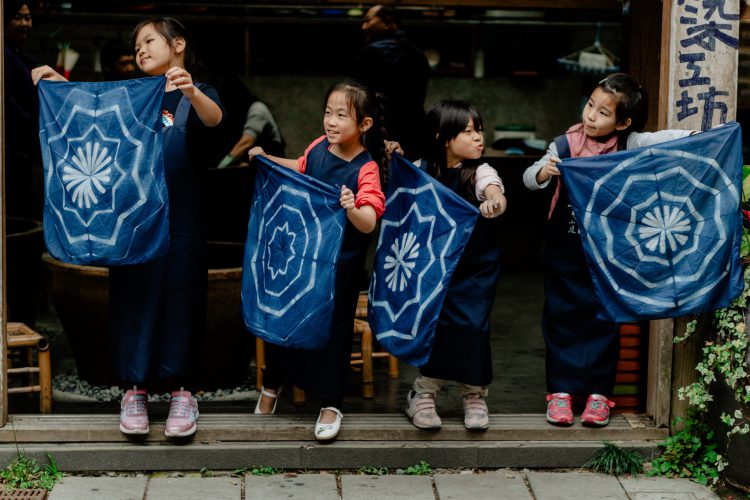
Leisure farms in taiwan are creating interesting programmes to please all kinds of tourists.
Moreover, re-evaluation is to be done every few years to ensure ISO compliance.
ISO has put in tremendous effort in various areas of agriculture with the purpose of ensuring that agricultural land will not be overdeveloped at the expense of our delicate ecosystem. This ISO-14001 certification has drawn up strategies to effectively preserve the environment and basic principles on farming. That said, there still isn’t a set of SOP from ISO that defines the modification of existing farming industry into an experiential tourism service sector.
This is where TLFDA can play an effective and proactive role because the island’s leisure farming industry already boats a comprehensive, well developed and systematic set of management SOP, which has been successfully implemented in over 400 member farms. It attests to the fact that it can veritably serve as a role model for leisure farms elsewhere in this world.
So, under the guidance of the association, the achievement of Taiwan’s leisure farming industry has been exemplary. It’s now time for Taiwan’s leisure farming industry to showcase to the world its very own Special Agro-tourism Spot (SAS) Certification. All this has been a consequence of the hard work of the old-generation farmers as well as the unwavering determination of their next-generation successors.
TLFDA has decided to make Malaysia’s farming industry its first overseas partner for technology transfer. According to the association’s secretary-general Dr Yu Wen-horng, who is in charge of certification, the association will send experts and scholars in areas related to leisure farming industry to Malaysia to provide technological guidance and training to ensure that our leisure farm operations here meet international standards.
Malaysian leisure farm operators keen to perfect their operations can contact Apple 101 for details. Once your farm has attained the prestigious SAS certification from Taiwan, I assure you that inbound operators will bring foreign tourists in Malaysia to visit and stay in your farms!
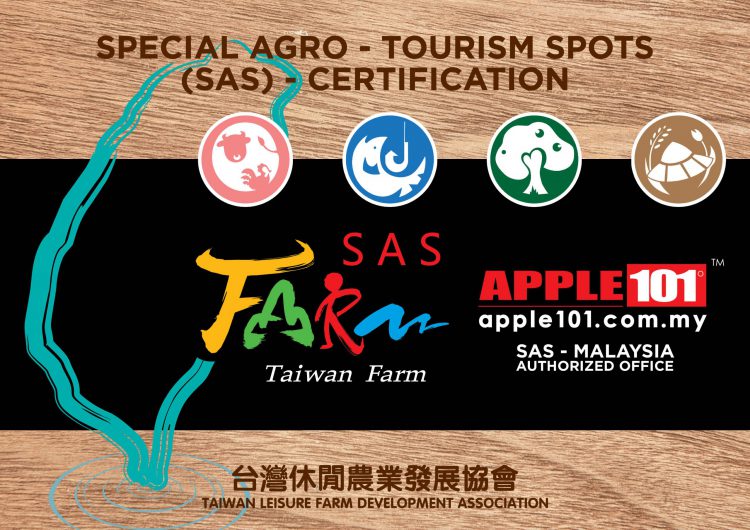
Taiwan’s SAS certification ensures that leisure farms meet international standards of operation.
Malaysian leisure farm operators keen to perfect their operations can contact Apple 101 for details.
Leesan, the globe-trotting traveller who has visited 137 countries and seven continents, enjoys sharing his travel stories and insights. He has also authored five books.
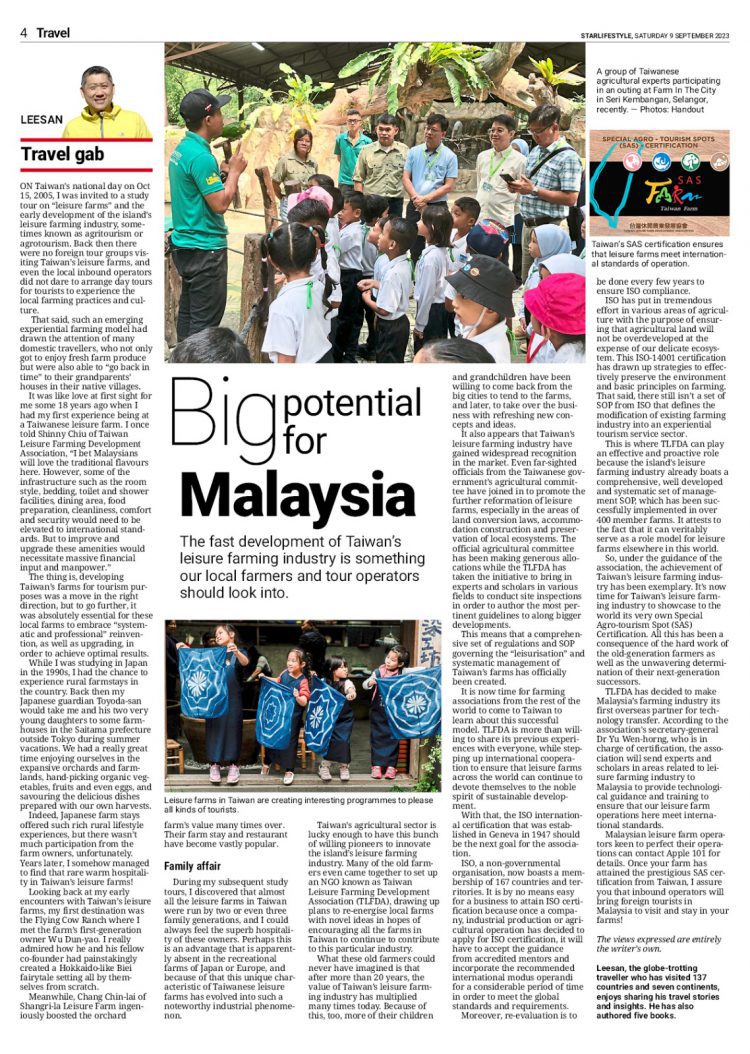
Published in STAR 2, 9 September 2023
全球超过80000家酒店,Apple101助您轻松订房,出行无忧,绝对优惠价。入住期间付款,多数客房可免费取消!
